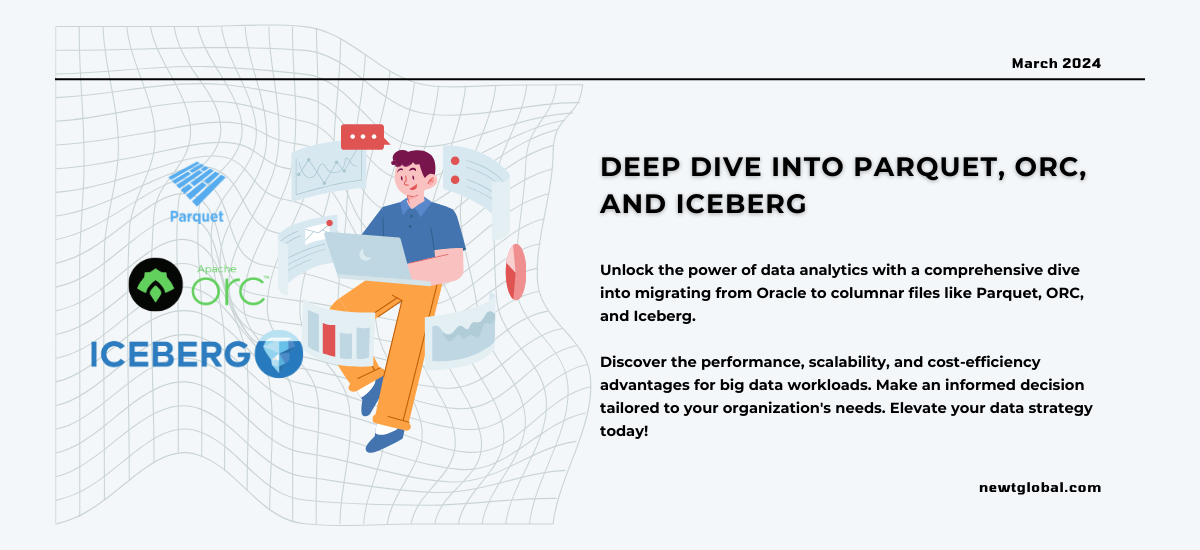
In the world of saving and looking at data, more people are choosing to use special file types like Parquet, ORC, and Iceberg. These types are different from the old way of saving data in systems like Oracle, especially when it comes to big data and searching through that data. But, should your group switch from Oracle to these new file types? It’s important to look at the advantages and disadvantages of each option to decide.
Advantages of Columnar Files:
-
- Speed: These files save data in columns instead of rows. This makes searching and combining data faster because only the needed columns of data are looked at. This is a big help for working with lots of data and makes things run quicker.
- Saving Space: By putting similar data together in columns, these files can make data smaller so it takes up less space. This can save money since you need less space to keep your data.
- Handling Lots of Data: These files work well when you need to grow your data storage and analysis, spreading it out over many computers. This means you can handle more data at once, making things run faster.
- Being Flexible: You can add new types of data without having to change everything. This is great for when you need to use new data or change how your data is organized.
- Works Well with Other Tools: Many cloud services and big data tools work naturally with these files, making it easier to work with your data.
Disadvantages of Columnar Files:
-
- Can Be Complicated: Switching from Oracle to these files might be tricky. You might need to change how your data is set up, which can take time and expertise.
- Not Great for All Tasks: These files are best for looking at lots of data quickly, but not as good for making changes to data or combining data in complex ways.
- Tools Might Be Limited: There are tools for these files, but not as many as for Oracle. This might make some tasks harder or require more effort to find the right tools.
Making the Choice:
Whether you should switch depends on what you need. If dealing with lots of data and needing things to run quickly is important, and you’re okay with some challenges in switching, these new file types could be a great choice. But, if your work involves a lot of data changes or you’re limited in how much you can change or learn new tools, staying with Oracle might be better.
Additionally, consider these factors:
-
- Your Data: If you have a lot of data and mostly need to search through it, the new files are a good choice.
- How You Use Your Data: If you often update your data or need to do complex things with it, Oracle might be better.
- Your Team’s Skills: Consider whether your team is ready to learn and use new tools.
- Your Budget: Think about the costs of changing over, including new tools and teaching your team.
Ready to Elevate Your Data Strategy?
Explore how migrating from Oracle to efficient columnar file formats like Parquet, ORC, and Iceberg can transform your data analytics and storage capabilities.
Take the first step towards a seamless, optimized data future. Visit us at newtglobal.com to discover how we can empower your migration journey. For a tailored consultation and to learn more about how Newt Global DMAP can specifically benefit your organization, reach out to us directly at marketing@newtglobalcorp.com.
Don’t miss this opportunity to elevate your data analytics and storage solutions. Newt Global DMAP is a world-class product enabling mass migration of Oracle Db to cloud-native PostgreSQL—faster, better, and cheaper. Act now to harness the power of efficient, scalable, and flexible data management with Newt Global. Your data’s future is just an email away.
